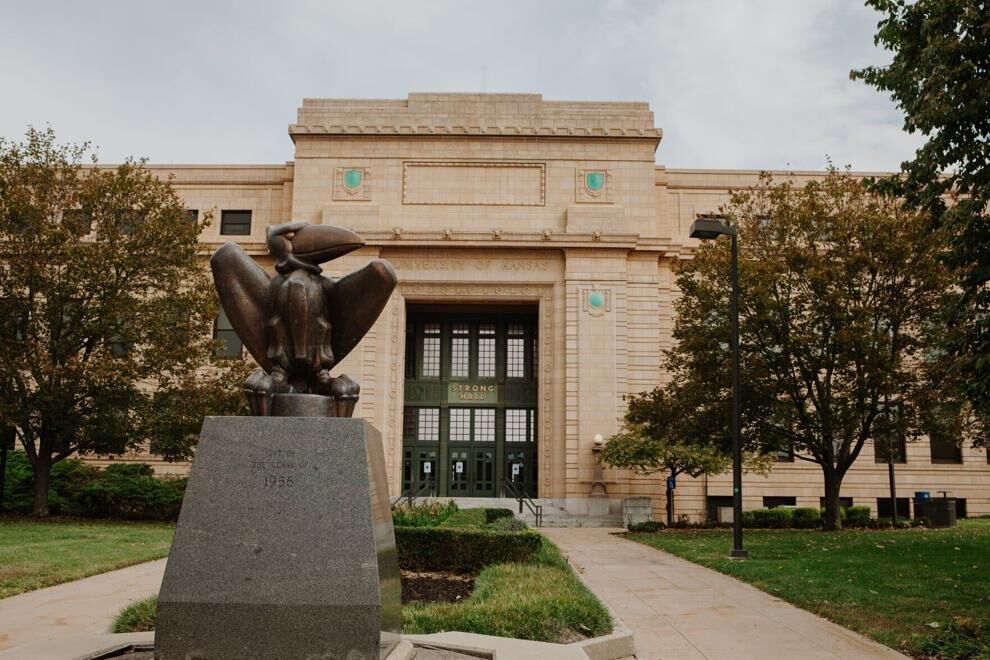Kansas HB 2460 seeks to remove DEI from postsecondary hiring

By The University Daily Kansas via My Courier-Tribune
A bill being heard in the Higher Education Committee would prohibit statements of diversity, equity, inclusion (DEI) or political ideology from hiring, scholarship, and admissions processes in Kansas higher education.
“The heart of the legislation is that it would prohibit postsecondary institutions from requiring or conditioning these admissions or employment or tenure promotions based off of an ideological statement,” said Rep. Steven Howe (R-Salina), the sponsor of House Bill 2460 and chair of the committee.
“Kansas public universities and colleges belong to the taxpayers of the state; as a legislator it’s my duty to make sure public institutions are protecting the constitutional rights of the students, prospective faculty, the current faculty and all that are involved in higher education in the state of Kansas,” Howe said at the Jan. 31 hearing.
HB 2460 was drafted by the Foundation for Individual Rights and Expression (FIRE), an advocacy group that focuses on issues of free speech on college campuses nationwide.
The bill follows other states implementation of anti-DEI legislation, with Texas passing similar legislation to HB 2460 prior to banning DEI offices on college campuses altogether. Similarly, Florida has banned the funding or maintenance of DEI offices at public institutions.
Tyler Coward, FIRE’s lead counsel, said at the hearing that while the bill specifically references DEI statements, it’s also intended to prohibit any broader ideological statements inclusion in these processes.
“While the current threats to academic freedom from these mandatory statements involve DEI or DEI related statements, FIRE is not here to condemn just DEI statements,” Coward said. “We would be here to oppose any sort of mandatory statement that functions as a political litmus test.”
As currently written, the bill would issue administrative penalties of $100,000 per infraction; the penalty funds would be transferred from the violating institution to either the state general fund, or the special revenue fund of a non-violating institution. The attorney general can file a suit with the state or federal court to investigate potential violations, as can individuals who believe their rights were violated.
The University of Kansas’ DEIB office did not respond to requests for comment.
Additionally, the bill does not apply to private institutions, and according to Coward, revising the bill to include private institutions could present constitutional issues.
Sarah Green, sophomore mechanical engineering student and student senator at the University of Kansas from Lee’s Summit, Missouri, said that DEI is “everywhere” at the University, and testified in support of HB 2460.
“From a student’s first introduction to the school, through applications, admissions, enrollments, in every class, in student government, every activity, student jobs, DEI is more than present,” Green said. “Specifically, as it relates to this bill, for my student job I have had to personally take DEI trainings.”
“To get a job tutoring math, to sit with another student and help them with their math, I was required to acknowledge that ‘I need more DEI training and education,’” Green said.
Blake Flanders, president and CEO of the Kansas Board of Regents, provided the bill’s neutral testimony. Flanders said that the bill may not be relevant to admissions in the state of Kansas.
“In Kansas, at our community and technical colleges, we have open admissions. If you go to apply to a community college, you’re getting in,” Flanders said. “At our universities, we’re undersubscribed … so I would say that in terms of applying to conditioning admission in Kansas, we don’t have the same highly selective institutions as referenced in California. This would have no application here in Kansas, because you’re not going to be denied.”
The ACLU of Kansas submitted oppositional testimony to the bill, with director of policy and research Rashane Hamby saying the bill poses threats to institution’s autonomy in hiring, as well as free academic practice and speech.
“By prohibiting schools from considering an applicant’s stance on diversity, equity, and inclusion, there is a risk of creating an environment that does not prioritize or value these crucial aspects of education and social development,” Hamby said in his testimony. “Educational institutions should have the freedom to cultivate communities that reflect their core values.”
Hamby also said in his testimony that both the restrictions presented and the ambiguous language of the bill pose possible constitutional issues.”
Nathan Madden, on behalf of the Health Forward Foundation, testified in opposition of the bill.
“Most working adults in the U.S. agree that DEI is a good thing; it’s good to have these open conversations,” Madden said. “With legislation like this, those conversations can be closed, and people become scared.”
Madden also testified that the bill poses specific detriment to the healthcare industry, citing similar legislation passed in Utah and its effects.
“Utah passed not the exact same legislation as this, but something similar recently, and they have seen candidate pools both of talented graduate students and faculty dry up,” Madden said in the hearing. “And it’s because people are scared to engage in these conversations.”
In the bill’s fiscal note, Fort Hays State and Emporia State universities identify increased expenditures as a concern; ESU estimates a one-time cost of $5,000 if the bill passes.
KBOR also identifies increased expenditures as a concern with the bill’s passage; however, the fiscal note says the cost “would be negligible and could be absorbed within current resources.”




